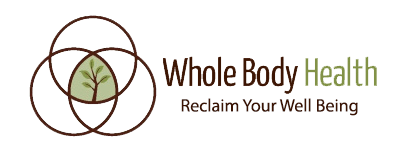Acupuncture
The unique concept of Chinese medicine is that a human being is a microcosmic expression of harmony and balance. Harmony depends on the Qi and the goal of acupuncture is to release blocked Qi. Experience the deep relaxation, stress reduction and general positive health effect of this ancient healing technique.
What is Acupuncture?
Acupuncture is an ancient oriental system of health care that uses the insertion of fine needles into the body at specific sites or points proven to be effective in the treatment of many health problems. These points have been used by the Chinese for thousands of years to keep a balance of energy in the body and this balance helps maintain good health. The acupuncture points were mapped by the Chinese over a period of 2,000 years and recently these locations have been confirmed by electromagnetic research.
How does Acupuncture work?
Based on Traditional Chinese Medicine theory, disease is considered to arise due to an imbalance of vital energy in the body’s energetic pathways or meridians and their associated physiological systems. Acupuncture works with the natural vital energy (Qi, pronounced “chi”), inherent within all living things to promote the body’s ability to heal itself. It is based on ancient Chinese theories of the flow of Qi and blood through distinct meridians that cover the body somewhat like the nervous system and blood vessels. According to ancient theory, acupuncture allows Qi to flow to areas where it is deficient and away from areas where it is excessive. In this way, acupuncture regulates and restores the harmonious energetic balance of the body allowing it to heal.
What can Acupuncture treat?
Acupuncture is appropriate for a wide variety of acute and chronic conditions, including but not limited to:
- allergies & asthma
- fatigue & accompanying depression
- PMS
- anxiety & insomnia
- digestive disorders
- headaches & migraines
- musculoskeletal pain (such as pain in the lower back, knees, shoulders, wrists etc.)
What does Insurance cover?
Many plans now cover acupuncture.You can call your insurance company directly or check with your employer to see if your plan covers acupuncture.
Is Acupuncture painful?
Acupuncture needles are very fine and flexible, about the diameter of a human hair. Insertion by a skilled practitioner is usually painless and in most cases the needles are inserted just below the surface of the skin. There are certain techniques of acupuncture which can cause a patient to feel some tingling, heaviness, or electric sensation either around the needle or traveling up or down the affected meridian. These sensations are usually mild and subside quickly after insertion. Acupuncture bears no resemblance to the feeling of receiving an injection. (The main source of pain from an injection is the large diameter, hollow needle and the medication being forced into the tissue, causing a burning sensation.) Acupuncture needles are super fine – similar to the diameter of a hair. Actually, the majority of patients report they are not bothered by the needle insertion and cannot feel the needles at all.
Are the needles sterile? Are needles reused?
Your health and safety is of utmost importance to us. Licensed acupuncturists are required to be certified in Clean Needle Techniques and use sterilized, individually packaged, disposable needles. We never reuse needles! A brand new set of premium grade, sterilized, individually packaged acupuncture needles are used for each patient. All our needles used here are one time, disposable needles. In 1996 the Food and Drug Administration approved acupuncture needles for use by licensed practitioners, with the requirement that the needles be sterile, nontoxic, and disposed of after a single use.
How long is a typical Acupuncture treatment?
A treatment typically lasts from 30 to 40 minutes. Acupuncture sessions are very relaxing and most patients even fall asleep during the treatment!
How will I respond to acupuncture?
Some patients feel progressively better after each treatment. Some illnesses, however, so dull the senses that the full severity of the symptoms is no longer clearly felt. As the healing progresses, sensitivity also returns so that a patient may feel temporarily worse. This passes within a short time and the patient typically feels much better. This phenomenon is known as a “healing crisis.”
What can I expect after my first treatment?
Patients often experience the most dramatic results in the first treatment. Some patients experience an immediate total or partial relief of their pain or other symptoms. This relief may last or some pain may return. In a few cases, there may be no immediate relief, but the patient may notice the pain diminish over the next few days. Generally, you should expect to feel better.
How many treatments are necessary?
That depends upon the duration, severity, and nature of your complaint. You may need a single treatment for an acute condition. A series of five to fifteen treatments may resolve many chronic problems. Some degenerative conditions such as arthritis or multiple sclerosis may require many treatments over time.
